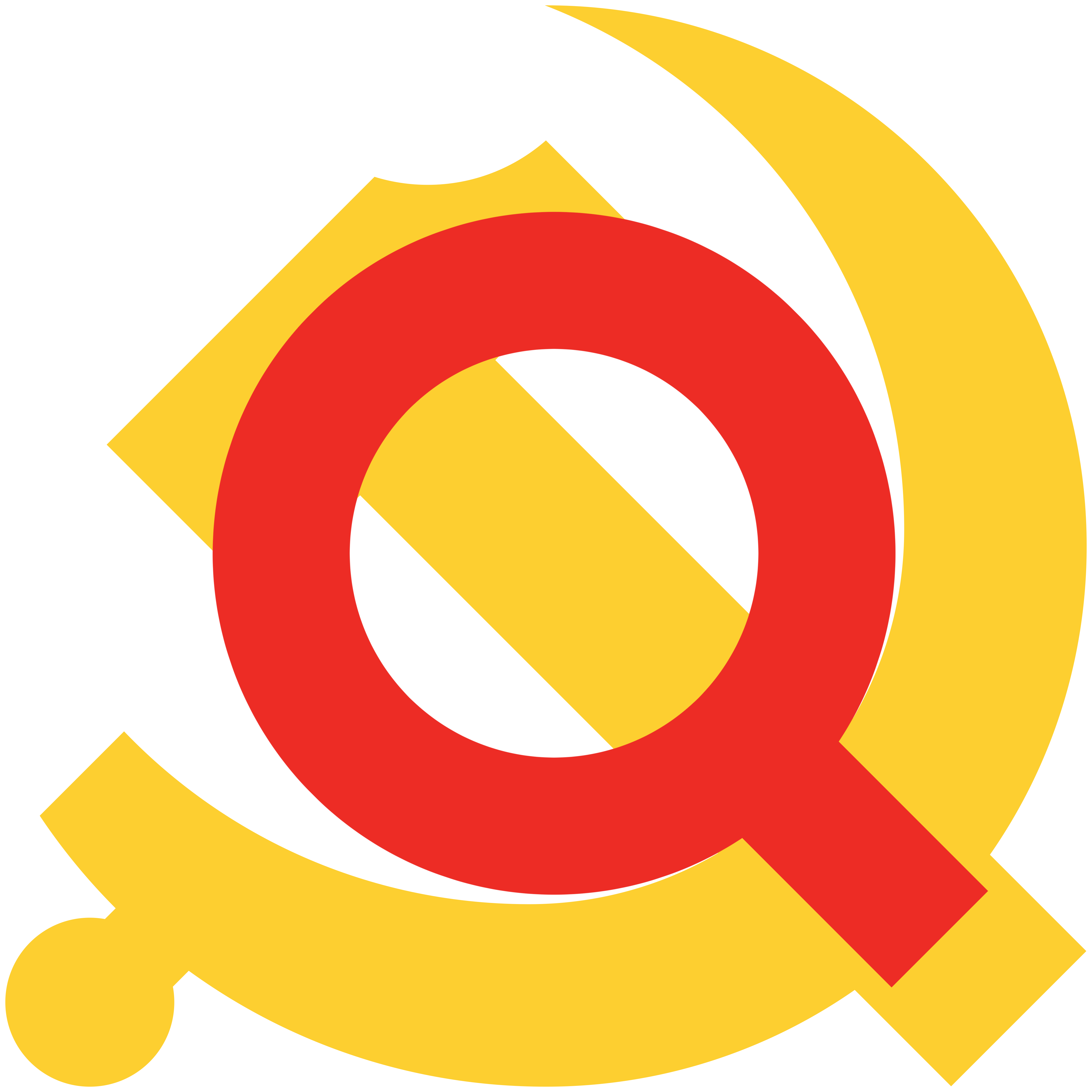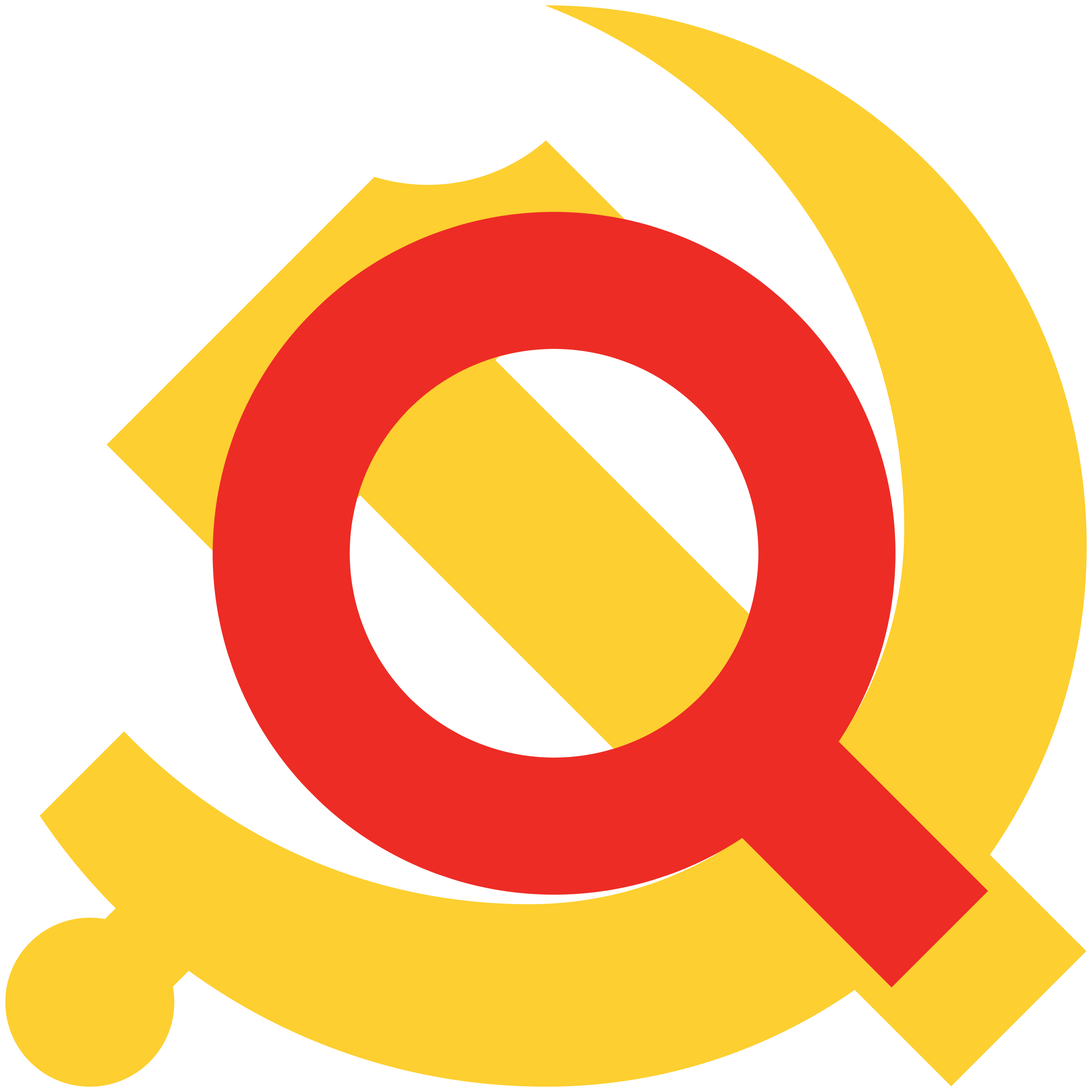Fight decades of misinformation on China with official Chinese sources.
- 57 Posts
- 196 Comments

 2·11 days ago
2·11 days agoI guess you were looking at the images when Lemmygrad was undergoing maintenance: “Images will be broken while we perform some maintenance” https://lemmygrad.ml/post/4830625

 32·12 days ago
32·12 days agoThere is a slogan “勤劳致富光荣”, which basically means “prosperity through hard work is glorious”, it can be shortened to “致富光荣” by removing the prefix “勤劳” (hard work), and this can be “mistranslated” into “to get rich is glorious”. I don’t think Deng Xiaoping actually said it, because even the Chinese Wikipedia page only mentions that this slogan was “associated” with him and Reform and Opening Up.
However, Deng was confronted with this exact phrase in 1986 during an interview with American TV Correspondent Mike Wallace, this is the excerpt from “Selected Works of Deng Xiaoping Volume III” (Foreign Language Press) page 173 to 174: (Theory China ebook link, marxists.org link, Chinese 71.cn link)
Wallace: To get rich is glorious. That declaration by Chinese leaders to their people surprises many in the capitalist world. What does that have to do with communism?
Deng: We went through the “cultural revolution”. During the “cultural revolution” there was a view that poor communism was preferable to rich capitalism. After I resumed office in the central leadership in 1974 and 1975, I criticized that view. Because I did so, I was brought down again. Of course, there were other reasons too. I said to them that there was no such thing as poor communism. According to Marxism, communist society is based on material abundance. Only when there is material abundance can the principle of a communist society—that is, “from each according to his ability, to each according to his needs”—be applied. Socialism is the first stage of communism. Of course, it covers a very long historical period. The main task in the socialist stage is to develop the productive forces, keep increasing the material wealth of society, steadily improve the life of the people and create material conditions for the advent of a communist society.
There can be no communism with pauperism, or socialism with pauperism. So to get rich is no sin. However, what we mean by getting rich is different from what you mean. Wealth in a socialist society belongs to the people. To get rich in a socialist society means prosperity for the entire people. The principles of socialism are: first, development of production and second, common prosperity. We permit some people and some regions to become prosperous first, for the purpose of achieving common prosperity faster. That is why our policy will not lead to polarization, to a situation where the rich get richer while the poor get poorer. To be frank, we shall not permit the emergence of a new bourgeoisie.
Note that the phrase I highlighted, “to get rich is no sin” (致富不是罪过), is also very controversial when taken out of context like “to get rich is glorious”.
No, but they’re written in “Book Six : Succession” of the Civil Code (Chinese, English translation).
Regarding board members, you can look at my comments in a post about the latest revision of the Company Law, but it’s mostly about changes and not a detailed explanation of the Employee’s Congress and other democratic mechanisms: https://lemmygrad.ml/comment/4153037
There are roughly these categorizations[1][2][3] for enterprises in China, and I’m already confused after researching the differences:
- domestic-funded enterprise (内资企业)
- state-owned enterprise (SOE, 全民所有制企业/国有企业)
- collective enterprise (集体所有制企业)
- associated enterprise (联营企业)
- cooperative stock enterprise (股份合作企业)
- limited liability company (LLC, 有限责任公司)
- corporation or joint stock limited company (股份有限公司)
- private enterprise (私营企业)
- enterprises invested by Hong Kong, Macao, Taiwan (港、澳、台商投资企业)
- foreign-invested enterprise[4] (外商投资企业)
The type of enterprise is very important as it directly affects who is able to make decisions. As you insist on asking about “Chinese companies in general”, here are some excerpts from an article on a website run by the All-China Federation of Trade Unions[5]: (translated using DeepL with minor corrections)
From the section on “Difficulties and Problems Facing the Current Democratic Management of Enterprises and Institutions” (当前企事业单位民主管理工作面临的困难和问题):
- inadequate awareness (思想认识不够到位):
一些企业经营者把企事业单位民主管理制度与现代企业制度对立起来,把职工代表大会制度与董事会、监事会对立起来,认为公司有了股东会、董事会和监事会就没有必要再召开职工代表大会,要发挥职工代表大会的作用就会制约企业的发展,妨碍企业的经营管理权,影响公司治理结构的有效运行。
Some enterprise operators put the democratic management system of enterprises and institutions in opposition to the modern enterprise system, and the system of employee’s congresses in opposition to the board of directors and supervisory boards, believing that there is no need to convene employee’s congresses when a company has a shareholders’ meeting, a board of directors and a supervisory board, and that to play the role of employee’s congresses will constrain the development of the enterprise, impede the right to manage the enterprise’s business and affect the effective operation of the corporate governance structure.
- insufficient standardization of processes (程序运作不够规范):
一是有的企业多年不开职工代表大会,即使开也不严格遵从法定程序,走走过场,作作样子。有的以其他会议代替职代会,搞“二会合一”“三会合一”甚至“四会合一” 。
- Some enterprises do not hold employee’s congresses (EC) for many years, and even when they do, they do not strictly follow the legal procedures, going through the motions and making a show of it. In some cases, other meetings are held in place of the EC, and “two meetings in one”, “three meetings in one” or even “four meetings in one” are organized.
二是一些企业职工代表大会中半数以上职工代表是各级管理人员,在职工代表的产生上存在“指定代表”和选举程序“走过场”现象,既没有实行差额选举,也没有广泛征求职工意见,产生的职工代表缺乏群众基础,难以充分代表广大职工的意愿。
- In some enterprises, more than half of the employee representatives in the employee’s congress are managers at all levels, and there is the phenomenon of “appointed representatives” and “going through the motions” in the election of employee representatives, with neither the implementation of short-listed elections nor extensive consultation with the employees, resulting in a lack of a mass base for employee representatives to adequately represent the will of the general employees.
三是有些企业在职工代表大会召开之前没有经过征集职工代表议案、审查确定会议议题等规定程序,而是直接到职工代表大会上进行审议,举手表决通过。
- Some enterprises do not go through the prescribed procedures of soliciting motions from employee representatives and reviewing and determining the topics for the meeting before the employee’s congress is convened, but instead go directly to the employee’s congress for deliberation and adoption by a show of hands.
四是有些企业怕得罪领导,直接取消民主评议领导干部、代表大会发言等重要环节,认为年底人事考核可以代替职代会民主评议。
- Some enterprises are afraid of offending the leadership, and directly cancel the democratic evaluation of leading personnel, congress speech and other important links, and think that the end-of-year personnel assessment can replace the democratic review by the employee’s congress.
- inadequate ability (能力素质不够高):
一是一些企业挑选“老好人代表”“听领导话代表”,职工戏称他们是“握手、举手、拍手”三手代表,是“稻草人”“橡皮人”, 这些人一切看领导眼色行事,往往不能真正代表职工说话,为职工办事。个别企业选举爱与领导作对、像“刺头”那样的代表,这样的代表爱出风头,容易弄僵干群关系,更难为职工办成好事。
- Some enterprises select “nice guy” or “yes-man” as (employee) representatives, […] these people act under the preferences of leadership, and often do not really speak on behalf of the employees or do things for them. Some enterprises in particular elect representatives who love to work against the leadership and act like “thorns”, and such representatives love to be in the limelight, this is likely to stiffen relations between the cadres and the masses, making it more difficult to do good things for the employees.
三是企业工会干部作为企业成员之一,在经济上受制于企业,往往会对推行民主管理制度产生畏难情绪,在为职工维权上存在“不敢维、不会维、不能维”的“三不”现象。
- As members of the enterprise trade union, cadres are economically constrained by the enterprise, they are often afraid of implementing the democratic management system, and there exists the phenomenon of “three not’s” of “not daring to defend, not knowing how to defend, not being able to defend” in defending the rights of the employees.
四是在国有企业改革改制深化过程中,随意撤并工会组织现象突出,且呈蔓延趋势,一些中央企业工会主席被排斥在公司领导层之外,缺少话语权,直接影响到民主管理工作的推进力度。
- In the process of deepening the reform and restructuring of state-owned enterprises, the phenomenon of arbitrarily withdrawing and merging trade union organizations is prominent and is spreading, and the chairman of the trade union of some central enterprises is excluded from the leadership of the company and lacks a voice, which has a direct impact on the strength of the promotion of democratic management.
References
- [1] 中华人民共和国企业法人登记管理条例 https://www.gov.cn/gongbao/content/2019/content_5468910.htm
- [2] 关于划分企业登记注册类型的规定 https://www.stats.gov.cn/sj/tjbz/gjtjbz/202302/t20230213_1902746.html
- [3] 分类规定 https://www.stats.gov.cn/sj/pcsj/jjpc/3jp/zk/html/zb02zh.htm
- [4] 【企业常见热点问题系列】“外商投资企业定义”一问一答 https://invest.beijing.gov.cn/sy/zt/qyrx/202307/t20230710_3159286.html
- [5] 当前企事业单位民主管理工作成效、问题和对策建议 https://www.workercn.cn/c/2023-02-14/7733743.shtml
- domestic-funded enterprise (内资企业)
When you ask such a broad question, what do you expect the answer will be? What kind of company? How big is the company? Do you know how many companies are there in China? What is an example of a democratic company that can be used as reference?
Private companies are only as “democratic” as the shareholders are democratic.

 13·26 days ago
13·26 days agoEmphasis on “liberal” in when I say “decent Chinese liberal analysis”, because the author is still using a binary leftist/conservatism against “reformist”/liberal mindset throughout the paper. This same mindset is shared by ultra-lefts, or left-deviationists, so really these are two extremes in ideology.
In China, reformers include both those who seek to get rid of the Chinese Communist Party and make the country a liberal democracy, as well as those who believe in the necessity of economic marketization, opening up to the outside world, and allowing some limited political reform that falls short of challenging the party’s supremacy. Conservatives oppose a market economy and political liberalization, usually in the name of safeguarding socialist orthodoxy, i.e., an economic system based on public ownership of property or economic assets, class struggle, and the party’s absolute control. In this paper, China’s conservatives are also interchangeably referred to as “leftists,” whereas the reformers are usually regarded as being on the right side of China’s ideological spectrum.
This binary categorization is why the author concludes that leftists won over reformists and China is now going down the path of “Maoist conservatism”. The author is unable to deal with dialectics as he views the following as policy contradictions:
First, if Xi was empowered by an elite consensus, what explains the policy contradictions during his early years in power? The party called for deepening marketization while further empowering the state-owned enterprises. It also advocated the rule of law while at the same time emphasizing the party’s unrestrained leadership and tightening up political control. In short, conservative and reformist policies coexisted in a confusing way. Such confusion raises the question of whether there was a unified collective patron who entrusted power to Xi.
My view is that Deng’s reforms and thus Socialism with Chinese Characteristics is socialist reform at its core, and ideological struggles within the party are not class struggles (socialism vs capitalism), they are instead debates on how to develop socialism. Mao vs Deng is a false antagonism, Mao was never ultra-left, as much as ultras and liberals wished he was. The “complication” with China’s politics as viewed by outsiders arises because they tend to associate certain tools with certain ideologies, like linking markets to capitalism, linking government planning and regulation with socialism. All confusion surrounding China’s politics comes from a lack of dialectical thinking.

 22·26 days ago
22·26 days agoI wouldn’t call this “western academia”, because the author’s name is “Lin Le”, an unambiguous Chinese name that suggests a mainland China education background. The fact that the author provides hundreds of references to Chinese articles, and is aware of nuanced political language is also evidence of this.
Thus I would say that this is a decent Chinese liberal analysis of Chinese politics, that goes beyond simple factionalism-based analysis.

 10·28 days ago
10·28 days agoLaogai (劳改、劳动改造) is reform through labor for criminals. Laojiao (劳教、劳动教养) is reeducation through labor and is an administrative punishment separate from the judicial system, this was abolished in 2013.
China published a white paper titled “Criminal Reform in China” in 1992 that mentions reform-through-labour: http://lt.china-office.gov.cn/eng/zt/zfbps/200405/t20040530_2910767.htm
I think the specific term laogai isn’t used officially nowadays, but criminals are still expected to work. From the Criminal Law:
Article 46 An offender sentenced to fixed-term imprisonment or life imprisonment shall serve his sentence in prison or another execution premise; anyone who is able to work shall engage in work for the purpose of education and rehabilitation.

 4·28 days ago
4·28 days agoI’m only talking about a hypothetical situation based on my own opinion, there is no point discussing it any further. Just look at Korea, China maintains relations with both North and South even though both sides want to reunify with the other side.

 6·28 days ago
6·28 days agoChina didn’t send troops to Myanmar, so the only place it would send troops to is Taiwan province in the case of forceful reunification.

 9·28 days ago
9·28 days agoChina sent troops to help North Korea during the Korean War, and sent military aid to North Vietnam during the Vietnam war. It also helped mediate a ceasefire between various forces in Myanmar just this January.
So yes, if Palestine was at China’s borders, things would be much different, but in that situation there would probably be another “Palestine” under imperialist-zionist invasion that is out of China’s reach.

 4·28 days ago
4·28 days agoI think the real reason is because Palestine is too far away from China, unlike Korea, Vietnam and
CambodiaMyanmar who are neighbours. But then again, China still has diplomatic relations with both North and South Korea, and couldn’t do much about their separated status even after helping Korea during the Korean War in the 1950s.

 121·28 days ago
121·28 days agoThe Palestinian-Israeli conflict is not “internal affairs”, these are recent remarks made:
Keynote Speech by Xi Jinping at Opening Ceremony of the 10th Ministerial Conference Of the China-Arab States Cooperation Forum, May 30, 2024 https://www.fmprc.gov.cn/eng/zxxx_662805/202405/t20240530_11314383.html
Since last October, the Palestinian-Israeli conflict has escalated drastically, throwing the people into tremendous sufferings. War should not continue indefinitely. Justice should not be absent forever. Commitment to the two-State solution should not be wavered at will. China firmly supports the establishment of an independent State of Palestine that enjoys full sovereignty based on the 1967 borders and with East Jerusalem as its capital. It supports Palestine’s full membership in the U.N., and supports a more broad-based, authoritative and effective international peace conference.
Foreign Ministry Spokesperson Wang Wenbin’s Regular Press Conference on May 22, 2024 https://www.mfa.gov.cn/eng/xwfw_665399/s2510_665401/2511_665403/202405/t20240522_11309866.html
China always firmly supports the just cause of the Palestinian people in restoring their legitimate national rights, supports the two-State solution and is one of the first countries to recognize the State of Palestine. China’s stance on the Palestinian-Israeli conflict is consistent. We believe the immediate priority is to implement UNSC Resolution 2728, realize ceasefire at once, end the unprecedented humanitarian crisis in Gaza and return to the right track of seeking a political settlement of the Palestinian question on the basis of the two-State solution as soon as possible. China will continue to work with the international community to play a constructive role for ending the Palestinian-Israeli conflict as early as possible and promoting a comprehensive, just and lasting settlement of the Palestinian question.
(No English version yet) China-Arab states joint statement on the Palestinian issue https://www.fmprc.gov.cn/wjbzhd/202405/t20240531_11366712.shtml

 552·28 days ago
552·28 days agoWhy hasn’t China cut ties with the US or Japan, why did China build diplomatic relations with them in the first place back in 1972? Why does China not have diplomatic relations with countries that “recognize” Taiwan province as an “independent country”, but still maintain ties with a genocidal Israel? Why hasn’t Russia cut ties with the US?
What does it mean to cut ties, for all official communication between two governments to stop? For all trade between two countries to stop? Cutting ties will not stop Israel from continuing its war crimes. I think China wants to be more of a mediator between Israel and Palestine as it supports a two-state solution, so cutting ties with any side will work against that.
According to this Wikipedia page:
As of 28 May 2024, 145 of the 193 United Nations (UN) member states officially recognize the State of Palestine (Israel is recognized by 165).

 11·29 days ago
11·29 days agoPress Statement of Vice Department Director of C.C., WPK Kim Yo Jong http://www.kcna.co.jp/item/2024/202405/news29/20240529-13ee.html
Pyongyang, May 29 (KCNA) – Kim Yo Jong, vice department director of the Central Committee of the Workers’ Party of Korea, issued the following press statement under the title “The ROK is not entitled to criticize the freedom of expression of the people of the Democratic People’s Republic of Korea” on Wednesday:
As already warned by the DPRK vice minister of National Defence, a large amount of waste paper and rubbish are being scattered in the border and deep areas of the ROK from the night of May 28.
According to the ROK media, waste paper and rubbish were found not only in the border area with the DPRK but also in Seoul and other parts of the ROK.
The Joint Chiefs of Staff of the ROK puppet army said that the DPRK is scattering a large number of balloons over the ROK from last night. It urged the DPRK to stop such an act at once, claiming that it is a clear violation of international law, an act of seriously threatening the security of ROK people and an unethical and lowbrow act.
We have tried something they have always been doing, but I cannot understand why they are making a fuss as if they were hit by shower of bullets.
After all, they hoisted a white flag just one day after they themselves have been exposed to the despicable article-scattering which the DPRK has called into question and demanded a stop for years.
I doubt whether those in the ROK could only see the balloons flying southwards without catching sight of the balloons flying northwards.
Scum-like clans of the ROK are now blatantly claiming that their leaflet-scattering towards the DPRK is “freedom of expression” and that the corresponding act of the DPRK is an “obvious violation of international law”.
Are the “freedom of expression” and “international law” defined according to the direction in which balloons fly?
It is the height of impudence.
It is an opportunity to reconfirm how clumsy and brazen the ROK clans are.
The ROK clans must be subject to due pains as they tried to scatter leaflets, the political agitation rubbish slandering the idea and system of the DPRK regarded by all its people as sacred, and inject their mixed ideas raised at cesspools to the DPRK, and made a serious mockery of our people by scattering the cheap money and trifles which even mongrel dogs wouldn’t like.
If they experience how unpleasant the feeling of picking up filth is and how tired it is, they will know that it is not easy to dare talk about freedom of expression as to the scattering near border area.
Today, I will get the following stand into shape:
“As the leaflet-scattering to the ROK belongs to our people’s freedom of expression and provides the people in the ROK with the right to know, there is a limit for the government of the Democratic People’s Republic of Korea to immediately stop it. I courteously seek the ROK government’s consent. …”
The ROK clans cannot deprive the DPRK people of their righteous “freedom of expression”.
They should continue to pick up rubbish scattered by our people, regarding them really as “sincere presents” to the goblins of liberal democracy who are crying for the “guarantee for freedom of expression”.
We make it clear that we will respond to the ROK clans on case-to-case basis by scattering rubbish dozens of times more than those being scattered to us, in the future.

 1·29 days ago
1·29 days agoFull report as Word document from http://english.scio.gov.cn/scionews/2024-05/29/content_117221007.htm : http://download.china.cn/en/doc/202405299.doc
PDF/Word from https://en.humanrights.cn/2024/05/29/7074a761eec248189a88da55e721e8b4.html:

 2·29 days ago
2·29 days agoFull report as Word document from http://english.scio.gov.cn/scionews/2024-05/29/content_117221007.htm : http://download.china.cn/en/doc/202405299.doc
PDF/Word from https://en.humanrights.cn/2024/05/29/7074a761eec248189a88da55e721e8b4.html:

 9·29 days ago
9·29 days agoAdditional context (there were questions over at [email protected] : His superior Lai Xiaomin:
- investigated in April 2018
- arrested in Nov 2018
- prosecuted in Feb 2019
- first court trial in Oct 2020
- sentenced to death on Jan 5, 2021
- appeal rejected, verdict maintained on Jan 21, 2021
- executed on Jan 29, 2021
- corruption activities were between 2008 and 2018
As for Bai Tianhui:
- arrested in Jan 2019
- first court trial, sentenced to death, on May 28, 2024
- corruption activities were between 2014 and 2018
The jig was up when Lai was investigated in 2018, Bai was already doomed from that point on.

 9·29 days ago
9·29 days agoAdditional context to answer some of the questions here: His superior Lai Xiaomin:
- investigated in April 2018
- arrested in Nov 2018
- prosecuted in Feb 2019
- first court trial in Oct 2020
- sentenced to death on Jan 5, 2021
- appeal rejected, verdict maintained on Jan 21, 2021
- executed on Jan 29, 2021
- corruption activities were between 2008 and 2018
As for Bai Tianhui:
- arrested in Jan 2019
- first court trial, sentenced to death, on May 28, 2024
- corruption activities were between 2014 and 2018
So the jig was up when Lai was investigated in 2018, Bai was already doomed from that point on.





The Sex Reassignment Surgery (SRS) and Transgender Hormone Therapy (THT) articles on Baike wiki includes the current situation in China. From what I’ve read in these two articles, THT is less “standardized” than SRS, and the former cannot be used as a basis to change your legal sex.
What I mean by “standardized” is that the National Health Commission has published standards for SRS in 2017 and updated them in 2022, the same cannot be said for THT. Here are the criteria in 2017 and 2022 for someone who wants to undergo SRS: (translated with DeepL)
2017:
性别重置技术管理规范(2017年版) – 三、技术管理基本要求 – (四)手术前手术对象应当满足以下条件:
Translation: Code of Technical Management for Gender Reset (2017 Edition) - III. Basic Requirements for Technical Management - (d) Pre-surgical surgical candidates should fulfill the following conditions:
2022:
国家限制类技术临床应用管理规范(2022 年版) – G05 性别重置技术临床应用管理规范(2022 年版) – 三、技术管理基本要求 – (四)手术前手术对象应当满足以下条件:
Translation: National Code of Practice for Clinical Application of Restricted Technologies (2022 Edition) - G05 Code of Practice for Clinical Application of Gender Reset Technologies (2022 Edition) - III. Basic Requirements for Technical Management - (d) Pre-surgical surgical objects should fulfill the following conditions:
Note that the updated criteria in 2022 removed the need for previous psychological and psychiatric treatment, and lowered the age requirement from 20 to 18.
There were two nationwide studies on the transgender community, conducted in 2017 and 2021, and problems with medical support in China was mentioned in the published findings.
Back to the question about access to estrogen, since there does not seem to be any national standard for THT, and 雌二醇 (Estradiol) is prescription medication, I would guess that it is indeed hard to get estrogen.
The user also mentioned that this is the only thing stopping them from moving to China, I think they’re underestimating the challenges in emigrating to any foreign country in general, especially a country with a strong national identity like China.